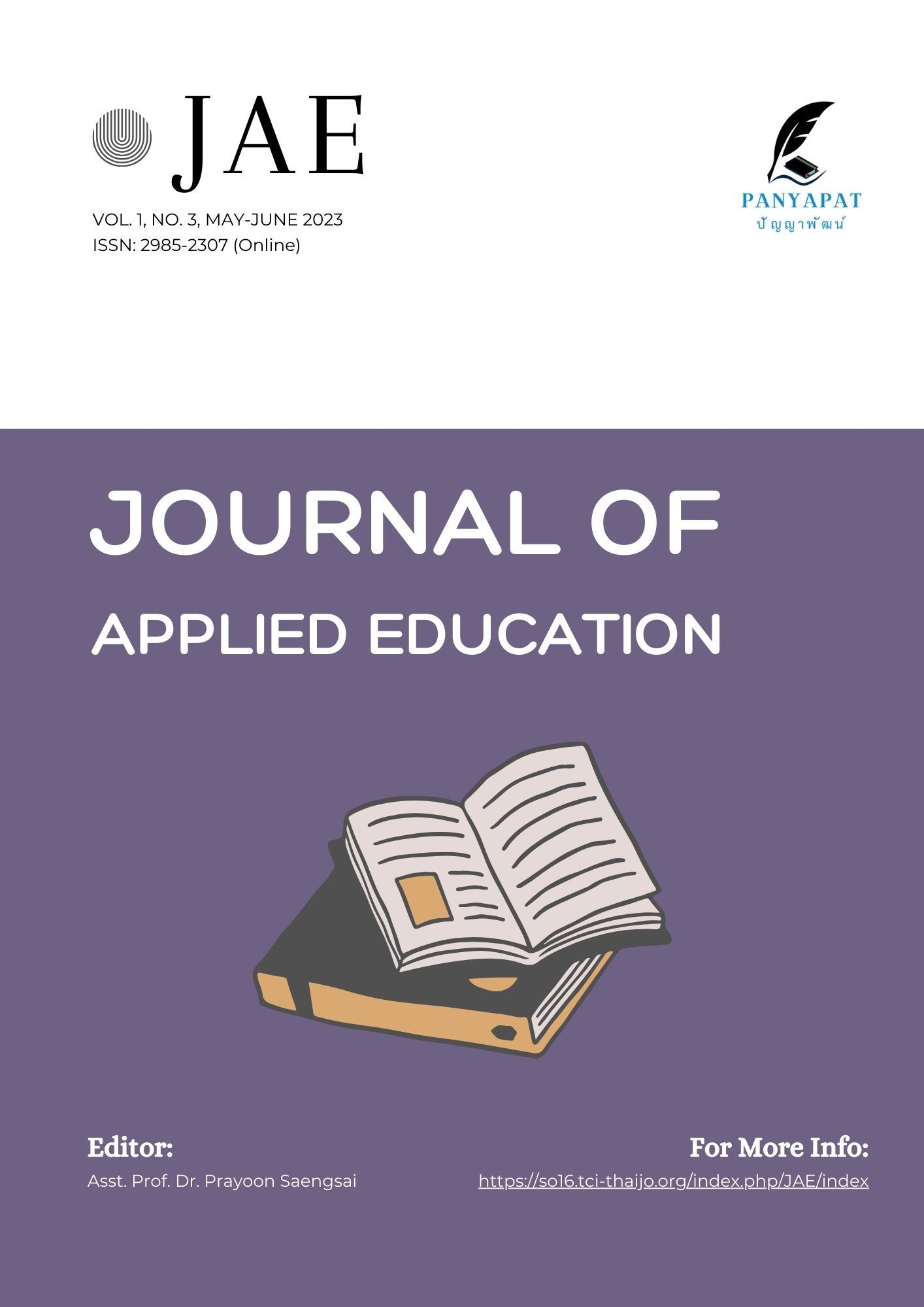Inquiry-Based Learning Management (5E) for Teachers in Learning Area of Social Studies,Religion and Culture
Main Article Content
Abstract
This article aims to present ideas about inquiry-based learning (5E) for teachers, Learning Area of Social Studies, Religion and Culture. It consists of the teaching concepts of teachers, Learning Area of Social Studies, Religion and Culture in the 21st century or the modern world that is rapidly changing, full of challenges and problems, complex and along with the detailed content that must be studied, there are a variety of learning subjects. This is a challenge for teachers to organize learning activities in an appropriate manner. That will encourage students to learn more efficiently. The 5E knowledge inquiry process is a teaching method that places importance on the learner or the learner as the center. There is a learning arrangement that trains students to search for knowledge using reasoning thought processes, makes you discover knowledge or correct solutions to problems on your own. The teacher sets questions that encourage students to use their thinking, find solutions to problems on their own, and be able to apply problem solving to their daily lives. The 5E knowledge inquiry process has five steps in organizing teaching and learning: (1) Engagement, (2) Exploration, (3) Explanation, (4) Elaboration, and (5) Evaluation. The 5E knowledge inquiry process as mentioned above is a good guideline for organizing teaching activities for subjects in the Social Studies, Religion, and Arts and Culture groups. Because it emphasizes on creating knowledge, skills, expertise, and competencies for students to use in living in today's changing society.
Article Details

This work is licensed under a Creative Commons Attribution-NonCommercial-NoDerivatives 4.0 International License.
References
กมล รอดคล้าย. (2560). การศึกษาไทย 4.0 ให้เรียนในสิ่งที่ชอบ. สืบค้น 12 มกราคม 2566. จาก http://www.thairath.co.th/content/1082110.
กรมวิชาการ, กระทรวงศึกษาธิการ. (2551). หลักสูตรแกนกลางการศึกษาขั้นพื้นฐานพุทธศักราช 2551. กรุงเทพฯ: คุรุสภา.
กระทรวงศึกษาธิการ. (2557). การเรียนรู้ในศตวรรษที่ 21. สืบค้น 12 มกราคม 2566. จาก http://www.moe.go.th/moe/th/news/detail.php?NewsID=38880&Key=news_research.
คณะกรรมการการศึกษาขั้นพื้นฐาน. (2560). คู่มือปฏิบัติงานเขตพื้นที่การศึกษา. กรุงเทพฯ: สํานักงานคณะกรรมการการศึกษาขั้นพื้นฐาน.
ทิศนา แขมมณี. (2545). การคิดและการสอนเพื่อพัฒนากระบวนการคิด. กรุงเทพฯ: สํานักงานพัฒนา คุณภาพวิชาการ (พว.).
นรรัชต์ ฝันเชียร. (2563). การเรียนแบบสืบเสาะหาความรู้ 5 ขั้นตอน (The 5 E’s of Inquiry-Based Learning). สืบค้น 12 มกราคม 2566. จาก https://www.trueplookpanya.com/dhamma/content/82385.
ปิยนันท์ สวัสดิ์ศฤงฆาร. (2563). องค์ประกอบ 7 ประการภายในองค์กรซึ่งต้องทำให้สอดคล้องสัมพันธ์กัน. สืบค้น 12 มกราคม 2566. จาก https://drpiyanan.com/2019/04/17/2-factor-theory-frederick-herzberg/.
วรพจน์ วงศ์กิจรุ่งเรือง และ อธิป จิตตฤกษ์. (2556). ทักษะแห่งอนาคตใหม่การศึกษาเพื่อศตวรรษที่ 21. (พิมพ์ครั้งที่ 2). กรุงเทพฯ: โอเพ่นเวิลด์ พับลิชชิ่ง เฮ้าส์.

